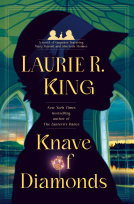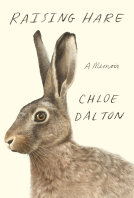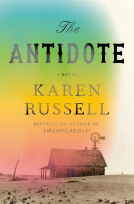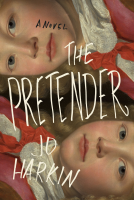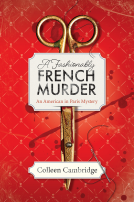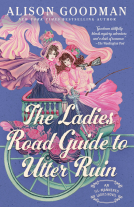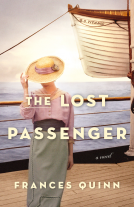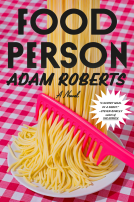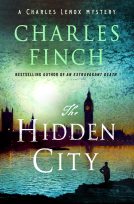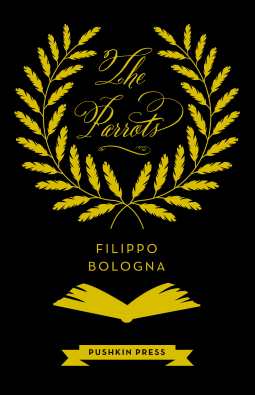
The Parrots
by Filippo Bologna
This title was previously available on NetGalley and is now archived.
Send NetGalley books directly to your Kindle or Kindle app
1
To read on a Kindle or Kindle app, please add kindle@netgalley.com as an approved email address to receive files in your Amazon account. Click here for step-by-step instructions.
2
Also find your Kindle email address within your Amazon account, and enter it here.
Pub Date Sep 16 2014 | Archive Date Sep 16 2014
Steerforth Press | Pushkin Press
Description
Advance Praise
"This very funny satire about the stuffy little world of literature could be set anywhere... It's a hoot, written with a shrewd eye for the absurdity of certain literary egos." - The Times"A five-star satire on literary vanity ... A wonderful, surprising novel with a rich payload of emotion behind the caricature." - Metro"Very funny ... lucidly translated." - Lucy Popescu, Huffington Post"[Bologna's] smart new novel ... [has a] smooth, knowing narrator ... shrewd and precise, often comic, with a cool eye for the truth of these characters', Daniel Hahn,Independent"A satire of Swiftian rancour... the parrots of the title act as apt metaphors for the endless churn of appropriation and pastiche that passes for literary originality... Bologna has a gift, preserved in Howard Curtis's crisp translation, for the comically jolting simile." - Nat Segnit, TLS"A scathing satire about the murky world of Italy's prestigious literary awards... Bologna paints a comically grim picture of a culture of back-stabbing and deceit."- Financial Times"Tacks between high literary majesty and good hard slapstick without ever capsizing... scintillating... that rarest of books: a damn decent novel about writers... terrific." - Samuel Ashworth, Brooklyn Rail
Marketing Plan
Dedicated US-based publicist to handle North American campaignTargeted mailing to national print and broadcast mediaSocial Media
Dedicated US-based publicist to handle North American campaignTargeted mailing to national print and broadcast mediaSocial Media
Available Editions
| EDITION | Other Format |
| ISBN | 9781782270393 |
| PRICE | $14.95 (USD) |
Average rating from 8 members
Featured Reviews
 Susan D, Reviewer
Susan D, Reviewer
What to say first about this Italian lampoon of writers' awards, a satire of The Prize for which three writers, The Beginner, The Writer and The Master are all nominated and are all working their way through the various avenues of the publishing world. Well, the first thing I would say is that I am pleased it has now been translated into English, giving me the opportunity to read and enjoy it. There are moments that are laugh out loud funny, moments that are touching, moments that I wanted the writer (not The Writer) to erase and do over. But that's what satire is. It challenges.
There are little gems like the following line inserted into The Writer's brain when thinking of his admirers.
For some unknown but human reason, recognizing themselves in a character in a novel made it possible for them to recognize themselves as individuals in the real world. It was like a literary Eucharist that signified their rebirth, their transition to a new life. (loc 325)
And this thought from The Beginner:
Before closing the door, attracted by the moist emptiness, he would stand there for seconds on end listening to the hypnotic hum of the refrigerant in the coils of the machine. This--he was almost convinced
--must be the closest thing to the noise of an intelligence at work. If there had ever been such a thing as the sound of writing, an inner, metaphysical sound, it absolutely had to be just like the sound of his refrigerator, so different from the vulgar pounding of a keyboard. (loc 459)
And lastly, from The Master:
"Life is merely passing time and the desire to be loved. Nothing else."
Life, life, life...How unbearable they were, these writers always talking about life. What do they even know of life? Have they ever lived? Poets, yes, they know about it. Other writers only imagine it. Scoundrels who climb naked onto a ledge and threaten to throw themselves off if nobody will listen to them, that's what writers are. If it wasn't for poets, who question every certainty in order to climb higher, and who extend to them the support of poetry in order to get them down like firemen with a scared cat... Life, yes, but other people's thought The Master. (loc 969)
Well now you have a glimpse into the brains and minds of the protagonists, those who hope for the ultimate Prize. And also I hope you have an idea of the writing that is here for your reading pleasure. I did, indeed, find it a pleasure. A few minor quibbles with the way the set up of the avian introduction and coda were presented perhaps, but otherwise, I definitely recommend this to my literary-minded friends.
An ecopy of this book was provided by the publisher through NetGalley in return for an honest review.
 Andrija F, Educator
Andrija F, Educator
It seems that the literature prize and the whole system around it is the topic of the year. First St. Aubyn's "Lost for Words", then his one. Compared to "Lost for Words" I actually enjoyed "The Parrots". The satire of both writers and the prize is biting, but also rather stylish. It reminded me of Sorrentino's great film "La grande bellezza" from the last year.
 Nancy C, Reviewer
Nancy C, Reviewer
The style, the language, the characters and the story melded beautifully in this novel to make it both interesting and a little off- beat.
Setting the dramatic action around the finalists for a literary prize was fun for me as a reader who retains a certain ambivalence for "prize winning" novels. The base nature of the principal characters added to novel's interest for me and I found myself REALLY caring about the outcome of the competition and the three finalists's approach to their work and their legacy.
Although the English edition of this book was translated from Italian, it he language felt natural and "right." The Parrot was one of the most interesting books I've read this year and I found it both thought provoking and entertaining.
Note: I will include a review of this book on goodreads.
 Margitte M, Reviewer
Margitte M, Reviewer
The Beginner, The Writer and The Master compete for a prestigious book award. To win the award they have to ensure enough votes for their books. All three desperately wants the accolades and will do anything required to gather enough support. Even if it meant that “If you’re not capable of creating a work of art, you have to become a work of art.”
They soon will discover that self-indulgence can only be successful if the social architecture of their environment allows them to succeed. Death, illness, women, workers and pets become Dionysiac metaphors for their personal ambitions and soon prove to be the factors they should have considered important enough, in the first place, in their quest for fame and fortune.
One of them demanded to win, one expected to win and one hoped to win. Not that all three of them acted out of free will. On the other hand, some temptations simply had to be yielded to, with unimaginable consequences. The morphology of the book industry is such that their choices of agents, publishers and editors played a major role in the sinister outcome of the event. All three formed part of formidable teams, either acting as instigator or victim in their own plots.
Whatever they envisioned for their destiny made them aware that the hardest part of any life, even a glamorous one, is to find one's feet and stay standing. Some of them won't find their feet in their quest to seek self-justice. One of the contestants had to address a complex dilemma for which there was no easy solution, only a dramatic outcome. The surprising twist in the end almost make this book a thriller. Almost, but not quite!
All three of them established some fundamental truths to feed their egos, such as: ..." suffering is a leper who walks with bells on his feet..."
"Life is too short to be devoted to suffering, people who suffer want to suffer, suffering is an invention of man: above the clouds the sun is always shining".
"The day of his divorce? A liberation. His father’s death? The deposition of a weary king. The end of a friendship? Social cleansing.
Everything that happens can become an opportunity. In all these years, The Writer has been the personal gardener of his own success. He has carefully mowed, watered and fenced off the evergreen lawn of his well-being. And now? Now he won’t allow anyone to get close, and fires off a volley if he so much as sees anyone lurking around the fence of his life. The obvious threat comes from outside, because inside his garden there is nothing and nobody that can harm him, he can run free without fear of tripping up: there are no obstacles or rusty tools in his garden."
Pathos, empathy, a little whiff of love, and even compassion define the authentic narrative playing itself out in a modern Rome. A tinge of surrealism creeps into the tale with the black parrot becoming some sort of unwanted, as well as feared totem.
The narrative skill used in the book, makes it an informative, often poetic, as well as entertaining read. Numerous phrases caught my imagination, such as: " His thoughts were watered by wine, fermented by the first sunshine of spring. "(paraphrased)
and
"When we are old we may say wise things, but when we are young we say true things."
A thoroughly enjoyable read.
"The Parrots " was provided by Pushkin Press through Netgalley for review. Thank you for the opportunity. I also bought the book, and I am happy with that. There will be quite a few people whom I know, would love to read it. I cannot wait to share it!
A Financial Times and Evening Standard Book of the Year 2014.
 Nadia A, Reviewer
Nadia A, Reviewer
What an entertaining read about prizes in the literary world! Such a great book!
“A writer writing a novel is like a serial killer who’s keeping a victim locked in the cellar. Every evening, he slides under the cellar door a tray with a little water and stale bread, just enough to keep his victim alive, anticipating the moment when he descends the cellar stairs to have his fun with her.”
As readers, we pay attention to those who carry off the coveted literary prizes in the publishing world. Those who directly benefit are probably the most interested in following the Trail of the Winners and the Losers. I note who wins this or that prestigious prize, but mostly my interest stops there. I don’t have any interest in reading a book just because it’s a prize winner, and I tend to be skeptical of the entire selection process. Nonetheless, I appreciate the efforts of those who try and read the short list for themselves prior to the announcement of the prize, and I also empathize with authors who wait for the news only to hear they’ve been passed over. It would be tempting (and also torturous) for those who didn’t win to read the prize-winning novel and chew over the reasons why this one won while theirs didn’t.
I’ll admit that the nasty side of me wonders what goes on in the minds of the contenders. The healthy thing, of course, would be for any nominee to cross fingers, ignore the process, hope for the best, and then behave gracefully when the prize falls to someone else. Sometimes it’s just not that easy to lose, and stories of rival authors attempting to sabotage each other through Amazon reviews give me hope for humanity. And that brings me to the Italian novel, The Parrots by Filippo Bologna, the cynical, but very funny story of three authors in Rome all competing for the same prize. These authors are known as The Beginner, The Writer, and The Master–all men at different stages of their lives and their writing careers. They are men who want/need that prize for a range of reasons, and given that I love to read books about people who behave badly, it was almost guaranteed that I’d like this.
The Writer, on his second unhappy marriage, and plagiarizer of his mother’s work, badly needs the prize. He tried writing novels “filled with love affairs, lonely desperate men throwing stones at the stars, missed dates, ashtrays overflowing with cigarette ends and women dragged by their hair, raincoated figures waking the night streets, cars speeding by beneath the streetlamps, the glances of strange women behind the windows of buses: that was how he imagined the stories he would one day write.” But “his stories had kept slipping away from him, his sentences had jammed like rusty revolvers.”
The Beginner turns out to be a tough contender, and according to The Writer’s publisher, The Beginner’s first novel may win the prize because it’s a “first book. And when it’s your first book, they forgive you everything.”
The Master plagued with bills, is convinced that other writers have the edge due to computers, if he could just “plug his technology gap,” he’ll be able to “rival other writers in creativity.” Facing cancer, he mulls over the “prizes he hasn’t won, the recognition he hasn’t obtained” and he sees the prize as “the only way to take leave of the world with dignity.” This drives him to desperate measures.
The Prize is organized and financed by The Patroness who as “the lines on her face crease a moment like a ruff, then relax” conjures up the image of an aging fashion model. Votes roll in. The Publisher tells The Writer that he’s behind in the prize voting which he explains is due to the death of voters they used to count on. The rash of deaths has lowered the age of the typical voter on the panel:
The older they are, the better. What little time they have left isn’t enough to read all the books in the competition. So they have to choose: read or live. They can’t do both. That’s why they have to trust what we tell them.
On the other hand, there’s The Beginner:
They’ve had him park his arse on the right sofas, on TV and in drawing rooms, they’ve stuck him on the covers of women’s magazines. He isn’t very intelligent but it’s not vital for him to be intelligent–on the contrary. He’s polite, good-looking, blue eyes, women have a soft spot for him.”
“I don’t think he’s that good-looking, he has a stupid face.”
Of course, you get the idea that it isn’t about the books, it’s about the projected personalities, the PR campaigns, vote rigging, and the pathetically unattended book events in provincial towns in which The Beginner offers “himself as a sacrifice to a handful of torturers who have emerged from their houses.” And of course, that’s taking the optimistic look that anyone will even show up. But there’s worse: “the neglected provincial writer chosen to chair the debate”:
Because he could well imagine ending up there himself. The Beginner had immediately recognised the type, universally knows as “provincial writer who hasn’t made it”. It was a very specific, widespread and in no way innocuous, anthropological and literary category. Poisoned by the suspicion, if not the contempt, of their fellow citizens, hurt by the smugness of literary society towards them, worn down by rejection and their own inadmissible lack of talent, such people spent their wretched days exiled to their desks, writing imaginary reviews, updating their blogs, working away at novels doomed to the eternal darkness of a drawer. With the passing of the years, they ended up suppressing their feelings of failure and converting them into a sense of martyrdoms. They constructed vast conspiracy theories in which powerful publishers, ensconced in the centre of things, did all they could to crush anyone outside their own charmed circle–the only proof of this conspiracy, of course, being their own misfortunes. They founded small and apparently crusading publishing houses in some cellar, or directly in their own homes, clandestine distilleries where they got drunk on the very spirits they sold under the counter. By so doing, they were finally able to realize their dream and see some of their own manuscripts in printed form, just for the fetishistic orgasm of touching the cover, leafing through the pages, arranging them on display on the mantelpiece in their best room. The most enterprising of them even managed to found schools of creative writing–on the pattern of the more famous ones–in premises placed at their disposal by cooperatives or local authorities, more as an opportunity to exchange a few words with some human beings on autistic winter evenings than as an assertion of their own debatable teaching skills.
Ouch! That long quote gives a sense of the novel’s tone. Caustic, merciless, and cynical, this clever novel pokes fun at the publishing industry, and apart from the occasional sink into farce, this mostly works. I found the objectification of the three authors: The Beginner, The Writer, and The Master, a bit wearying at times, and asked myself why the author chose to write the novel like this. Why not give his characters names instead of leaving them as types? But after concluding the novel, it seems fair to argue that individualism doesn’t count–identity beyond production doesn’t matter as in many ways. The Beginner, The Writer, and The Master, while three separate human beings plagued with their own issues, are arguably the same person at different stages of their careers in this grubby cannibalistic industry.
The Parrots is a good companion read to Gert Loveday’s very funny novel, set at a writers’ workshop: Writing is Easy.
Review copy/own a copy.
Readers who liked this book also liked:
Publishers Lunch
General Fiction (Adult), Nonfiction (Adult), Teens & YA
